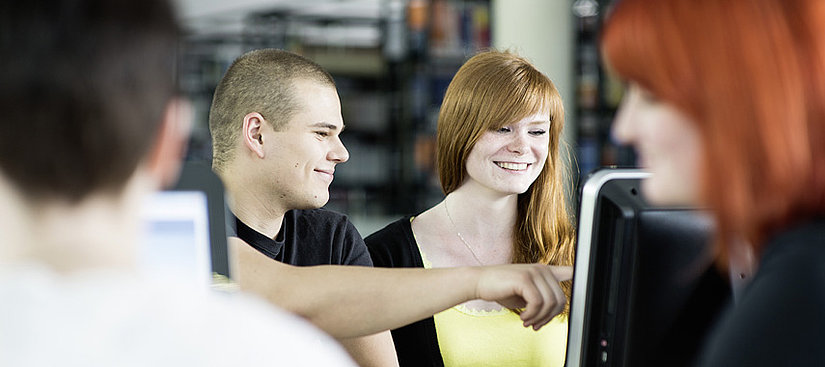Safety engineering

SAFE TECHNOLOGY FOR A SAFE WORLD
Constantly increasing demands on modern technology mean that traditional proofs of safety, quality and reliability are reaching their limits. For example, cars, rail vehicles, aeroplanes, machines, production plants, computers and robots today have a significantly higher level of functionality than their predecessor generations. Safety engineering opens up new possibilities for designing, evaluating and assessing modern technologies safely and reliably for people and the environment.

what you can expect
The degree programme focuses on functional safety. You will be qualified to help design systems, vehicles, processes and software in such a way that they do not cause any damage to people, the environment or the systems themselves during operation.
You will learn the basics of safety technology and engineering. This includes Boolean algebra, probability theory, technology vocabulary as well as some computer science, some mechanics, some design theory and a little electrical engineering.
You can deepen your knowledge in elective modules, projects and internships at the university and in the practical semester in companies.

Programme contents
In the first semesters, the basic subjects of safety engineering, information technology and engineering sciences as well as mathematics are offered. From the 4th semester onwards, depending on your interests, you can choose to attend lectures, practical courses, seminars, laboratories, your project and Bachelor's thesis from the following professional fields:
- Functional safety (e.g. road safety engineering).
- People and technology (e.g. screen design, user design).
- Quality management (Black Belt qualification).
- Reliability engineering (e.g. simulation, tools, predictions).
Your course of studies
Mathematics for Engineers I
Physics
Applied Computer Sciences and Programming Languages
Safety Engineering Fundamentals
General Competences
Mathematics for Engineers II
Mechanics for Safety Engineering
Digital Systems for Safety Engineering
Methodology 1
Human–Machine Interaction 1 — Fundamentals of Psychology and Ergonomics
Quality management
Embedded Systems for Safety Engineering
Functional Safety 1
Reliability Engineering Fundamentals
Technical English for Engineers
Business Administration and Law for Engineers
.
Mechanical Engineering Design for Safety Engineering
Electrical Engineering for Safety Engineering
Human-Machine Interaction 2
Methodology 2
Software Quality Management
Safety and Reliability Management
Functional Safety 2
Safety Engineering Project Study 1
Elective module 1
Elective module 2
Internship semester and practical seminar
Elective modules 3 to 7 (6 credits each)
Praxissemester und Praxisseminar
Bachelor's thesis and colloquium (12 + 3 credits)
Details on registration, completion and submission of the Bachelor's thesis can be found in your module handbook. Your first supervisor will advise you on the content of your thesis.
What you need to bring along
- General or subject-specific university entrance qualification.
- University entrance qualification.
- A qualification recognized as equivalent as part of professional qualification.
Application process
The application phase for the approval-free Bachelor’s degree programmes for the coming winter semester begins on 01. May 2025 and ends on 15. September 2025. Applications can only be submitted online via our application portal.
If you have any questions, please contact the application support team.
What our graduates say
"During our studies, we developed technical solutions to questions of safety for people and the environment. A wide range of specialisations were possible in elective subjects. Today, I also pursue my interest in software in my job. Testing memories and programmable safety controllers for industrial systems is my personal highlight. I apply a lot of what I learnt during my studies in the varied, international projects. The course content provides a good and versatile basis for developing specific skills."
Tobias Timm, 2022
"The Safety Engineering degree programme is quite unique. The degree programme combines reliability engineering, functional safety and people & technology and provides a broad range of specialist knowledge in the fields of safety engineering, natural sciences and technical and mathematical principles. This opens up a wide range of opportunities for graduates in the world of work. Students benefit from close dialogue with the professors. The Mülheim campus is well connected to the Ruhr region and easily accessible."
Larissa Perlitz, 2020


